- Verify Websites (and Sellers) Before Buying
- Don't Store Your Payment Information
- Don't Shop When Using Public WiFi
- Only Provide Necessary Information
- Use Strong and Unique Passwords
- Regularly Monitor Your Bank Statements
- Beware When Shopping on Classified Websites
- Frequently Asked Questions
Shopping online is the new norm. Whether you're shopping for groceries, clothing, gifts, or other everyday items, you can find them online. But, unfortunately, with the added convenience of online shopping comes additional risks—scammers are everywhere, trying to steal your information and money. For this reason, it's important to know how to shop online safely.
Armed with the proper knowledge, you can keep yourself and your money safe from scammers and hackers. Follow these safety tips when shopping online and reduce the risk of identity theft, credit card fraud, and other scams.
Verify Websites (and Sellers) Before Buying
Before shopping on a website and especially before entering any of your information onto the site, you should verify its authenticity first. Even if the website looks legitimate, it could be fake, designed to trick you into providing your credit card information.
Even if websites are legitimate, you still should verify that the company has good practices and has good customer reviews. Steps you can take the verify a website include to:
- Check their social media accounts and read customer comments.
- Look for their returns and exchange policy and ensure it's fair.
- Make sure the site is secure (i.e., starts with "https://").
- Look up customer reviews/complaints on third-party websites, such as the Better Business Bureau (BBB).
- Look for poor grammar, spelling, and design issues.
Don't shop on any website that doesn't have the padlock symbol in the address bar. The padlock (and the "https://" at the start of the URL) mean that your connection with the site is secure and your information is safe.
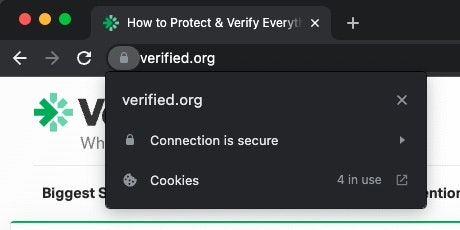
How to Shop Online Safely: Beware of Copy Cat Websites
Sometimes scammers will use well-known brand names, setting up fake sites to trick you into sending money under false pretenses. For example, maybe you want to buy something from Walmart but somehow end up on (hypothetical site) Wa1mart.com—a fake site designed just like the legitimate Walmart.com site.
It may have the Walmart logo and similar products for sale, but your items never arrive when you put an order through, even though your credit card was charged.
Double-check the URL to ensure you're on the actual retailer's website.
Don't Store Your Payment Information
Although it may seem convenient to store your credit card information or PayPal login within your account, this creates additional risk. If the company's database is hacked and suffers a data breach, then not only is your login information leaked, but so is your credit card number, security code, and zip code. The hacker basically will have everything they need to charge transactions to your credit card.
Data breaches aren't the only thing you need to worry about either. If someone is able to access your account for any reason, they'll be able to charge purchases to your saved payment method and have packages sent to a different address.
How to Shop Online Safely: Use Mobile Pay Whenever Possible
Many websites and shopping apps are now starting to allow paying via Apple Pay, Google Pay, or another digital wallet. This is a great option, if available. Not only is it convenient and much easier than entering your payment information, but it's much more secure.
Entering your credit card information each time you want to make a purchase may seem like a hassle, but it could ultimately save you hundreds and even thousands of dollars.
Don't Shop When Using Public WiFi
Whether on a website or within an app, don't use public WiFi—always use a private and secure internet connection whenever you're shopping online. (In fact, don't ever use public WiFi unless it's absolutely necessary, regardless of whether you're shopping online or not.)
Public WiFi is not secure—anyone who knows what they're doing can intercept the data you're sending online.
Don't ever use public WiFi whenever you're:
- Entering login information
- Entering credit card information
- Submitting sensitive information
- Filling out online forms
While browsing the internet on public WiFi is generally okay, if you're going to purchase something, disconnect from public WiFi and use a secure connection instead.
Only Provide Necessary Information
Don't shop on websites that ask for more information than is necessary to make your purchase. All a company should need to complete a transaction is your:
- Name
- Shipping address
- Payment information, such as your:
- Credit card number
- Credit card expiration date
- Credit card CVV
- Name on the credit card
- Zip code
- Email address
(Some websites may also allow you to log into PayPal or another payment website to complete your payment.)
If a website asks you for additional information like your Social Security number or bank account number, do not proceed. There is no reason for a retailer to need this sensitive information for you to complete an order.
Use Strong and Unique Passwords
If you're creating an account with the retailer (instead of checking out as a guest), make sure you use a strong and unique password. This will make your account harder for hackers and scammers to access.
Most people think having a strong password is enough, but making sure it's unique and not used on any of your other accounts is equally important. For example, suppose a scammer has your login information for your email account (as the result of a data breach, for example). In that case, they could also login into your Amazon account that shares the same email and password.
Use a Password Manager
If you have a hard time remembering all of the different passwords you have for your online accounts, you're not alone. But, there is a solution. Password managers help you securely store your passwords, so you don't have to remember them all or write them down somewhere. Some password managers also allow you to access your passwords from all of your devices, making having secure accounts easier.
Regularly Monitor Your Bank Statements
Monitoring your bank statements is good practice regardless of whether you are an avid online shopper or not. It's helpful for two main reasons:
- You'll be able to spot any fraudulent activity.
- You'll be able to spot if you've been charged incorrectly by any company.
Scan through your credit card and bank account statements, paying attention to the amounts being charged and what it was for. If you see anything that shouldn't be there, dispute the transaction with your bank.
NOTE: Sometimes, the business name you're familiar with isn't the one that shows up on your statement because the company may use a different name.
Most banks make it very easy to dispute transactions—sometimes, it's as simple as clicking a button.
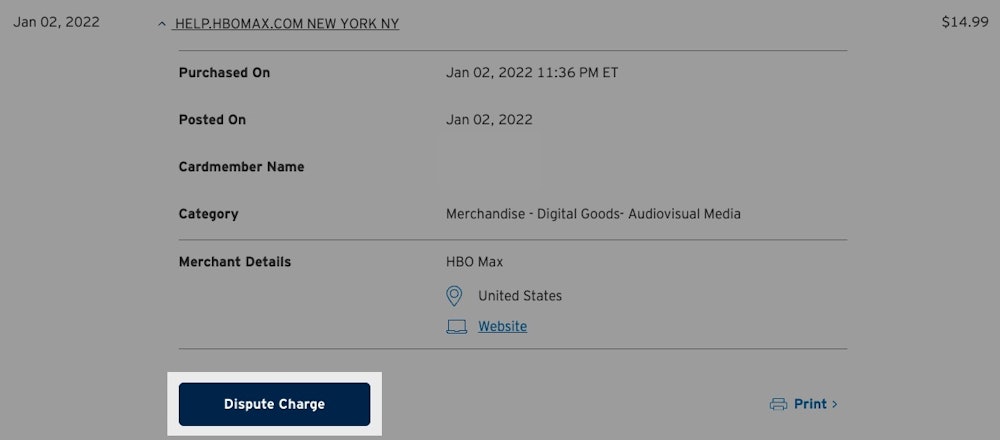
If there have been fraudulent transactions charged to your debit/credit card, your bank will cancel your card and issue you a new one with a new card number.
Beware When Shopping on Classified Websites
One of the riskiest places to shop is on classified websites, such as Craigslist, OfferUp, and Facebook Marketplace. Although there are plenty of genuine sellers on these platforms, there are also a lot of scammers.
When buying from an individual seller, always look for signs of scams. Some red flags include:
- Pushy sellers.
- Sellers who can't meet in person and allow you to view the item before purchasing it.
- Sellers asking for payment via gift card or wire transfer.
- A vague listing with minimal information.
- Strange grammar or poor spelling.
- A price that seems too good to be true.
- Sellers who are asking for your sensitive information.
Don't go through with the purchase whenever something seems a little off. Often, when something seems too good to be true or something just doesn't feel right, your gut is the right thing to follow.

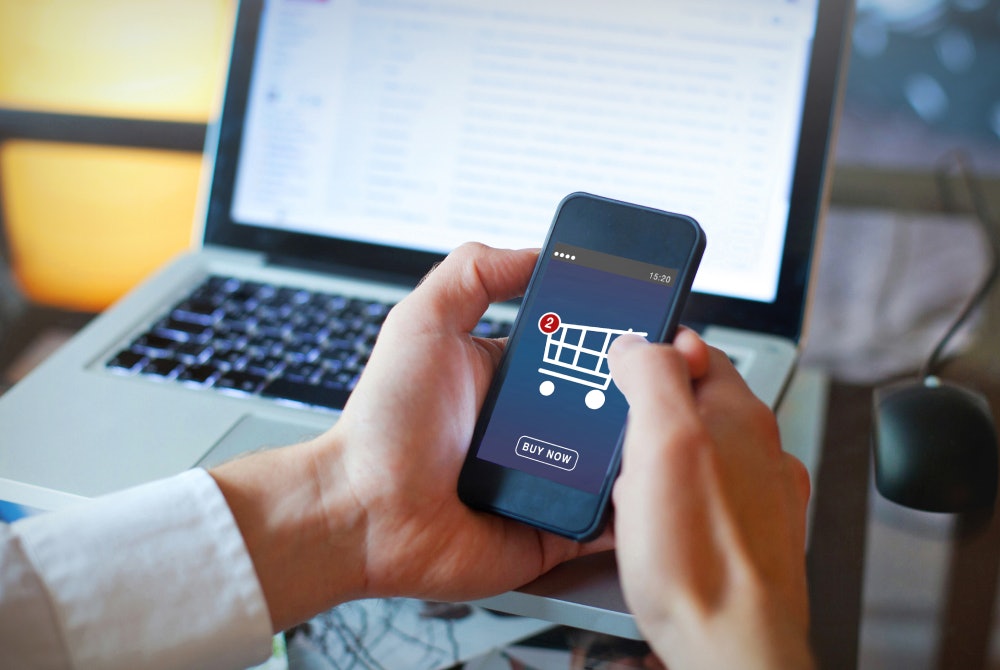

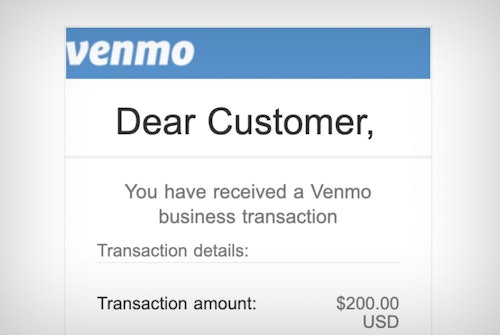
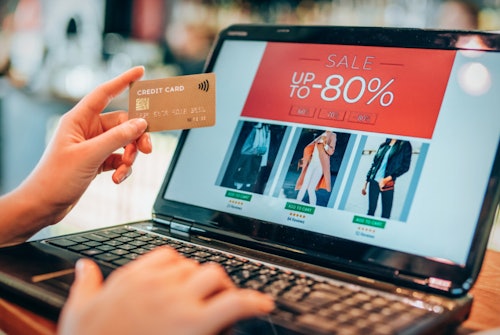






Comments